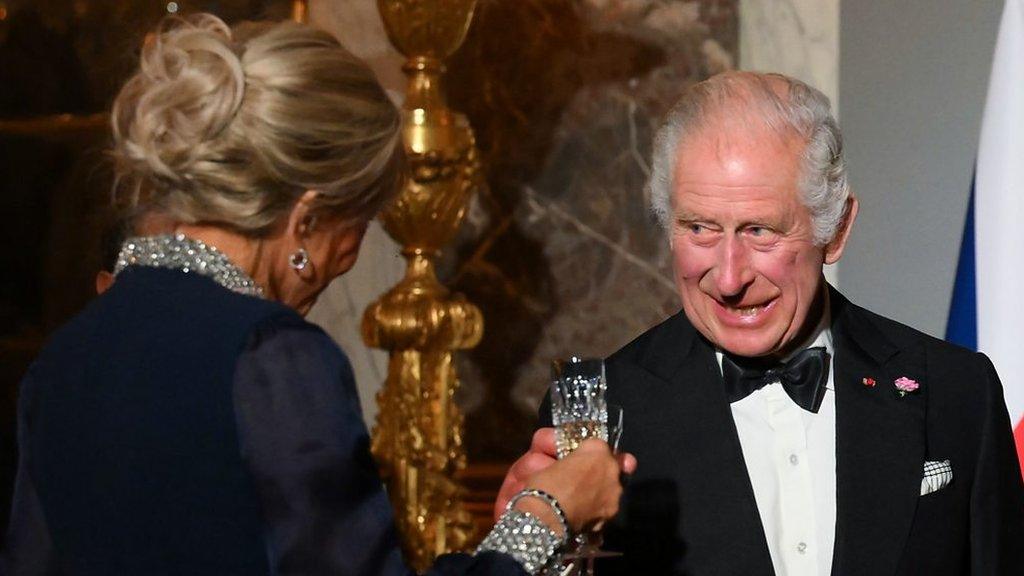King Charles impresses Paris while the rest of France shrugs
- Published
'Vive le roi': Fans in France welcome King Charles
The last time a King paid a state visit to Paris, there were 35,000 French soldiers lined up along his route to the Quai d'Orsay and a massive Union Jack flag was unfurled from the top of the Eiffel Tower.
This was in 1938, and King George VI and Queen Elizabeth, the future Queen Mother, were cementing an alliance about to be put once again to the test in war.
Parisians turned out en masse.
"When the loudspeakers hidden in the trees began God Save the King, it was as if the whole capital - what am I saying? the whole of France! - was singing the British national anthem," gushed Wladimir d'Ormesson in Le Figaro newspaper.
"One had the feeling that each and every Parisian - and they were out there in their millions - wanted to welcome personally the royal guests."
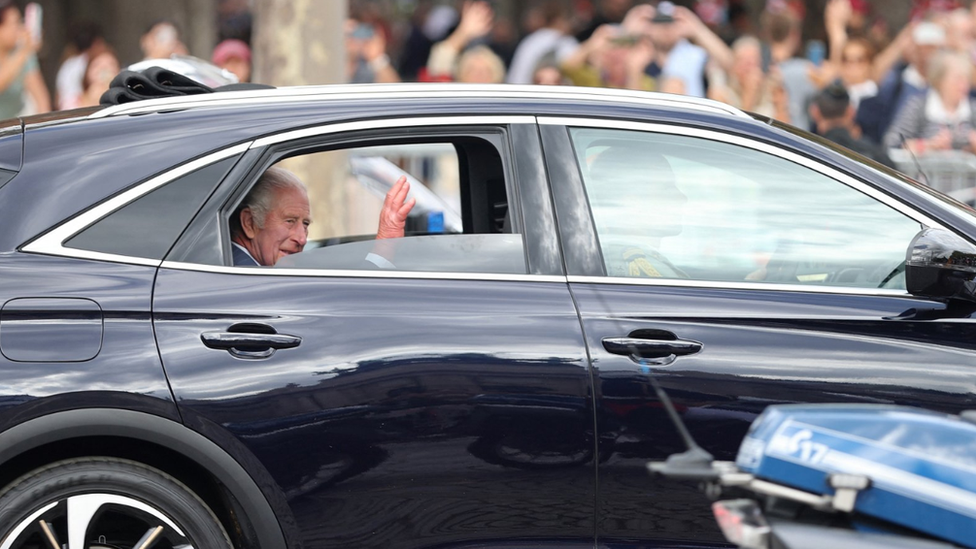
King Charles and Queen Camilla spent two days in Paris before the final day of their visit in Bordeaux
Eighty-five years later- on the surface at least - there was a rather different ambience.
When King Charles III and President Emmanuel Macron processed down the Champs-Élysées on Wednesday, it would be unfair to say the cavalry escort outnumbered cheering onlookers.
But it would not be far off, and most of those were tourists.
Half-way down the avenue the two chefs d'état sensibly withdrew from their waving position in the open-top limousine and returned to their seats because actually there was no-one to wave to.
Watch: King Charles III makes French-language toast at star-studded banquet
French TV networks loyally found a couple of devoted fans of the Windsors for every stop on the tour. They duly explained how it was different seeing people on the TV from seeing them in the flesh.
But no truthful account of the state visit can hide the fact, in Paris anyway, the people never came.
"There is no point in expecting cheering throngs," veteran French royal-watcher Stéphane Bern told me before the visit began.
"Times have moved on," he said. "Nowadays, state visits are two-a-penny and no-one bothers to turn out."
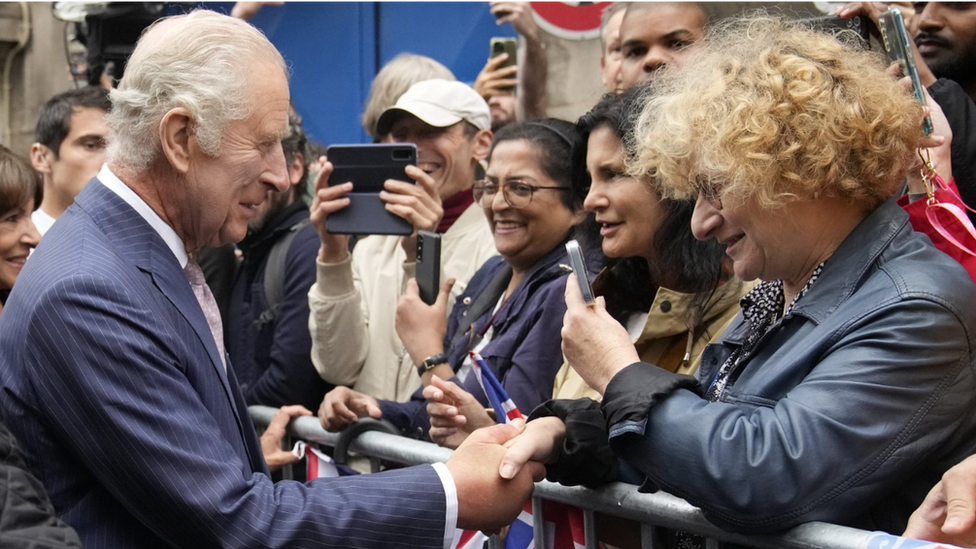
King Charles III meets residents after visiting the Flower Market in Paris during his three-day state visit to France
That may be true. But it is also true the King's mother, the late Queen Elizabeth II, drew large - though admittedly diminishing - numbers of well-wishers during her five state visits - six if you count 1948 when she was still a princess.
Back in 1938 the whole city practically came to a standstill.
So are things different now that the Queen is gone? Are the French less interested in the entente cordiale than they used to be? Does familiarity with famous figures via television and social media breed a kind of indifference?
I think the only fair way to answer that is to say that the world has indeed changed.
The Queen represented the old order. She was already 12 when her parents visited before the war, and people in France responded to her accordingly.
She was a living link to the trials of the last century.
Inevitably the connection with King Charles is different.
In the same way the rituals to commemorate the sacrifices of the two wars are not the same as they were.
This is not to diminish them. It is to admit that when memory turns to history - when real tears change to mere solemn faces - people feel less involved.
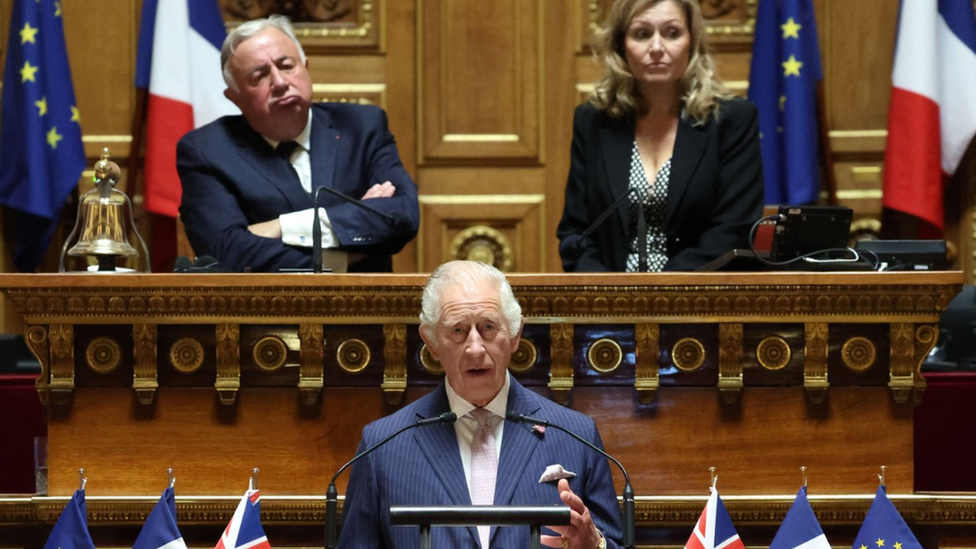
King Charles became the first member of the Royal Family to speak from the Senate chamber in Paris
But, none of that - the absence of any popular outpouring of affection or even interest - need detract from the importance or success of the visit.
In the Senate chamber on Thursday, it was possible to observe the enormous value of the British monarchy extending even into these iconoclastic, irreverent times.
There was among the assembled French parliamentarians a sense of awe towards the royal presence that in diplomatic terms was worth more than a thousand treaties of friendship.
True, a handful of Communist senators and deputies boycotted the event, on the grounds that on this very day in 1792 the Convention had decreed the abolition of the French monarchy.
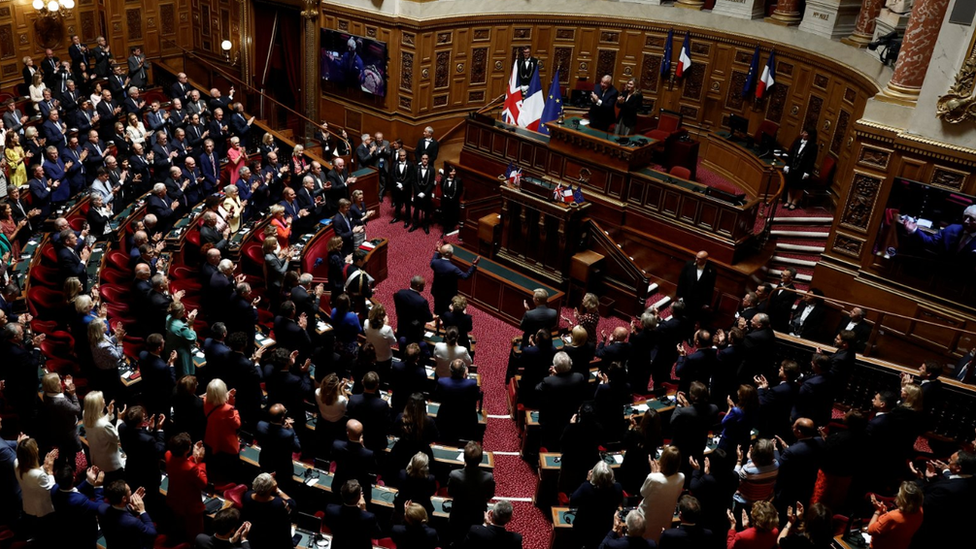
King Charles is applauded by members of parliament after he delivered his speech at the French Senate in Paris
But that was an unfortunate coincidence of history everyone else regarded with total bemusement.
For the rest, the King - merely by dint of being the King - created an emotive field around him which had the parliamentarians, Republicans all, in raptures.
And when he spoke the familiar phrases about shared sacrifices, and common values, and ententes, it mattered not a jot that the phrases were familiar and overworked.
They came from the King - and gave the phrases context, and memory, and meaning.
Related topics
- Published20 September 2023
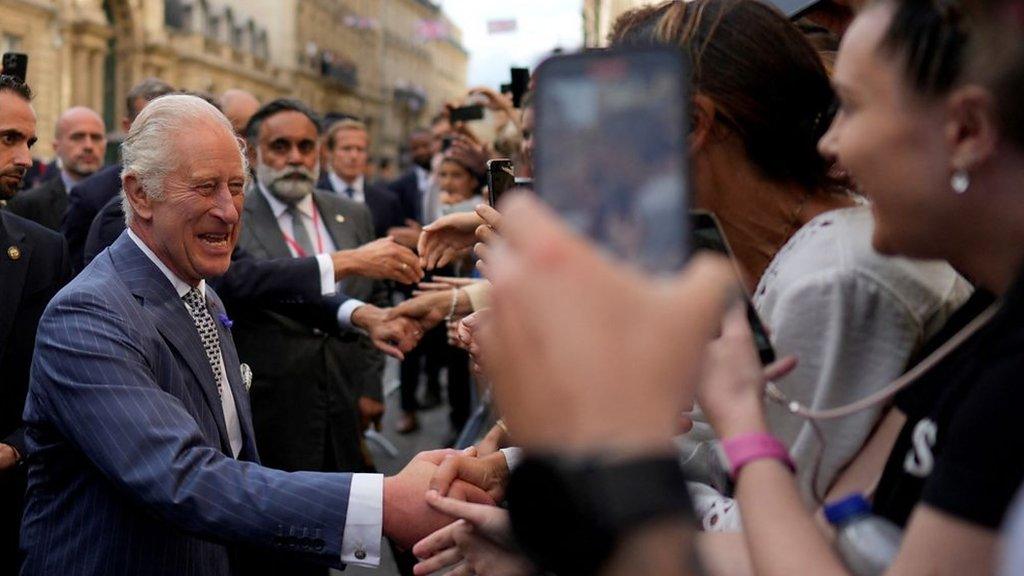
- Published20 September 2023
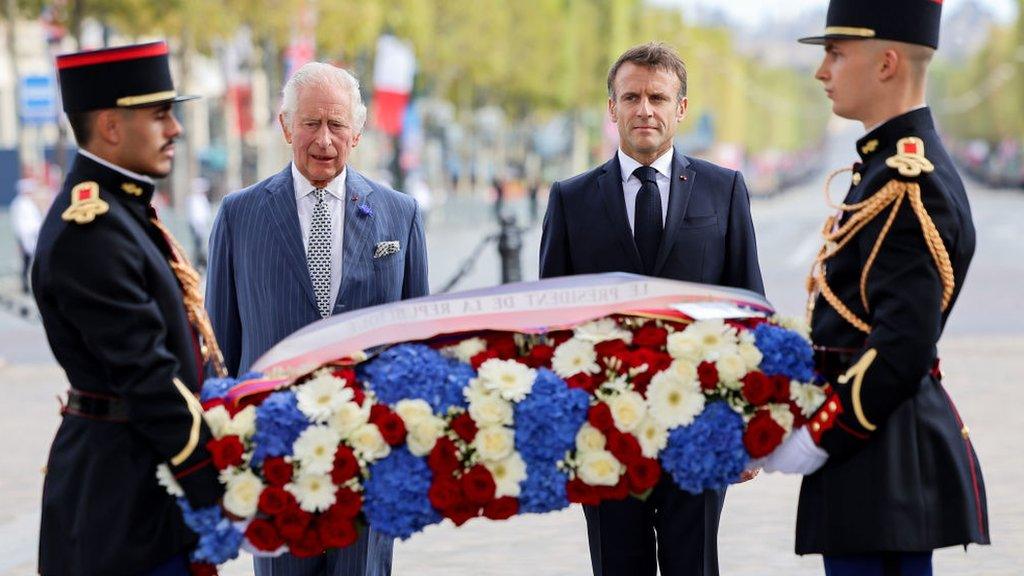
- Published20 September 2023
